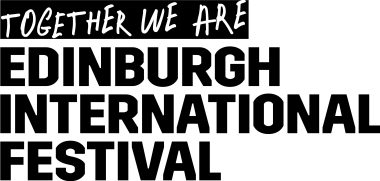
 United Kingdom Edinburgh International Festival 2024 [3]: Queen’s Hall, Edinburgh. (SRT)
United Kingdom Edinburgh International Festival 2024 [3]: Queen’s Hall, Edinburgh. (SRT)

6.8.2024 – Leonore Piano Trio.
Clara Schumann – Piano Trio, Op.17
Helen Grime – The Brook Sings Loud
Dvořák – Piano Trio No.3 in F minor, Op.65
8.8.2024 – Alexandre Kantorow (piano).
Brahms – Rhapsody in B minor, Op.79 No.1
Liszt – Chasse-neige; Années de Pèlerinage: Vallée d’Obermann
Bartók – Rhapsody, Op.1
Rachmaninov – Sonata No.1
The Queen’s Hall probably didn’t know what had hit it over the first weekend of this year’s Edinburgh International Festival. After the theatrics of Jakub Józef Orliński’s on Saturday morning (review here), it then hosted a scorching performance of Latin American choral music choral music from the Schola Cantorum de Venezuela.
So settling down to what probably comprises ‘normal’ might have come as something of a relief to what normally serves as the festival’s demure home of chamber music. There wasn’t much that was safe about these two performances, though: both in their own ways were daring and searching.
That said, the most daring thing about the Leonore Piano Trio’s programme was also the least successful. Helen Grime’s The Brook Sings Loud is inspired by the pibroch, known as the classical music of the bagpipe world. It is a set of variations that Grime wrote with folk playing in mind though, in reality, the variation form made it feel bitty and fragmentary. It is partly a study in togetherness (from the strings) versus separateness (of the piano), but the writing is wiry and sinuous so that texture takes precedence over melody. The Leonores played it with the lithe seriousness it needed, but they couldn’t make it cohere effectively, and overall the piece struggled to find its centre.
That wasn’t true of Clara Schumann’s Piano Trio, which they played with an overall tone of restrained dignity, punctured by passionate outbursts. Her Scherzo lollops a little awkwardly, but the slow movement sounded great with its lyrical, long-breathed violin line.
If Benjamin Nabarro’s violin was the star of the Schumann, then Gemma Rosefield’s cello stole the limelight in Dvořák’s F minor Trio, playing with gorgeous, flowing warmth in the slower, lyrical sections, especially so in the slow movement with its gorgeous sense of generous unfolding. Elsewhere they played the trio with an appropriately symphonic sense of weight, from the serious first movement to the dance-driven finale, and there was a perceptible change of tone with the music finally sweetened into the major key in the final pages.
But if you were looking for symphonic weight then one man provided it all by himself in Thursday morning’s recital. French pianist Alexandre Kantorow whipped up a storm at the keyboard; a musical storm perhaps even more powerful than the literal storm that drenched him during the opening ceremony for the Paris Olympics. His pianism is so muscular and assertive that he is capable of not only whipping up but controlling fistfuls of chords at every turn, something that his big-boned programme needed him to do a lot. A singing quality shines through consistently, though, often finding marvellous lyricism in even the fieriest passages.
That characterised his beautifully balanced Brahms, and his Liszt performances grew from the rippling beauty at the opening of the ‘snowstorm’ etude into something threatening and sinister by the middle. His Vallée d’Obermann was smooth, almost hymn-like in places, but always with an unstoppable energy surging beneath the surface, something that was equally true of his Bartók, which was flavoured with a perceptibly eastern European tang of squeezed harmonies and ostentatious runs that would disappear upwards into thin air.
Rachmaninov’s Sonata No.1 carried nobility in its forcefulness, Kantorow managing to hold on to a sense of mystery in the music, not only in the love scene of the slow movement, with its haunted sense of loss and impossibility, but also in the demonic perpetual motion machine of the finale, whose concluding double octaves sounded like bells tolling with a terrible finality. His encore, Nina Simone’s transcription of the love theme from Saint-Saëns’s Samson et Dalilah, was as surprising as it was deliciously slushy. One audience member presented him with a bunch of flowers at the end: he deserved it.
Simon Thompson
The Edinburgh International Festival runs at venues across the city until Sunday 25th August. Click here for further details.
